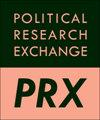Political party ideology and immigration policy reform: an empirical enquiry
IF 1.8
Q2 POLITICAL SCIENCE
引用次数: 18
Abstract
ABSTRACT What drives the restrictiveness of immigration reforms? To what extent does the political ideology of parties in government and parliament matter? Drawing on immigration policy data offering unprecedented historical and geographical coverage, we analyse the drivers of immigration reforms in 21 Western immigration countries between 1970 and 2012. Our results show that there is no robust effect of the political ideology of governments and parliaments on the overall restrictiveness of immigration reforms. Partisan effects are limited to certain migration policy areas, primarily to integration policies, and to certain migrant groups, particularly asylum seekers and undocumented migrants. In contrast, political party ideology does not fundamentally shape decisions on the core of immigration regimes, such as entry policies or policies towards labour and family migrants. Our findings also showcase the importance of international policy diffusion and of trade-offs between reforms in different policy areas. Overall, the analysis highlights that although immigration is subject to heated debates in the public sphere and extensive political bargaining, the actual policies enacted seem primarily driven by factors such as economic growth, social welfare protection and the structure of political systems that are largely independent of the political ideology of parties in power.政党意识形态与移民政策改革:实证研究
是什么推动了移民改革的限制性?政府和议会中政党的政治意识形态在多大程度上起作用?利用前所未有的历史和地理覆盖的移民政策数据,我们分析了1970年至2012年间21个西方移民国家移民改革的驱动因素。我们的研究结果表明,政府和议会的政治意识形态对移民改革的总体限制程度没有显著影响。党派效应仅限于某些移徙政策领域,主要是融合政策和某些移徙群体,特别是寻求庇护者和无证件移徙者。相比之下,政党意识形态并不能从根本上影响移民制度的核心决策,例如入境政策或针对劳工和家庭移民的政策。我们的研究结果还显示了国际政策扩散和不同政策领域改革之间权衡的重要性。总体而言,该分析强调,尽管移民问题在公共领域受到激烈辩论和广泛的政治讨价还价的影响,但实际制定的政策似乎主要是由经济增长、社会福利保护和政治制度结构等因素驱动的,这些因素在很大程度上独立于执政政党的政治意识形态。
本文章由计算机程序翻译,如有差异,请以英文原文为准。
求助全文
约1分钟内获得全文
求助全文

 求助内容:
求助内容: 应助结果提醒方式:
应助结果提醒方式:


